Opioid Rehab Center in Texas
Opioid use disorder is a persistent condition, but it’s important to note that it is treatable. While the topic of opioid addiction has posed a significant public health issue for an extended time, advancements are being made to assist individuals suffering to find access to treatment and care for their specific needs. A combination of medications and behavioral therapies can help individuals cease opioid use.
Origins Texas Recovery, located in South Padre Island, Texas, is committed to combating prescription opioid misuse, overdoses, and opioid use disorder. By raising awareness of the associated risks and promoting safe medication practices, Texans can help prevent opioid addiction and contribute to the resolution of the opioid crisis.

Is Addiction Impacting Your Life?
Take The First Step To True Healing Today!
The Rise Of the Opioid Epidemic
The opioid crisis has profoundly impacted communities throughout the United States, and Texas is certainly not an exception. As a drug and alcohol rehabilitation center in Texas, Origins Texas Recovery has been leading the charge against the opioid epidemic.
Opioid Addiction in Texas: An Overview
Furthermore, the statistics available do not encompass the detrimental impact that opioid misuse can have on daily life, nor do they account for the repercussions on those in the individual’s social circle. The abuse of these substances can lead to strained relationships with friends and family, diminished performance in professional or academic settings, and may result in severe health, legal, and financial ramifications.
If you suspect that a friend or family member may be misusing prescription opioids, it is crucial to address the issue with professional help from Texas opioid treatment programs. Seek advice on how to approach this difficult yet potentially life-saving discussion. Treatment options are available, and recovery is achievable. Below are several important statistics and trends concerning opioid usage, misuse, and overdoses in the Lone Star State:
- In 2022, only around 3.95% of individuals with opioid use disorder sought treatment.
- Texas has experienced a notable rise in drug poisoning fatalities, which have surged by 75% over the last five years. In 2022, there were 5,489 deaths due to overdose, with opioid-related incidents constituting 58% of these cases. For context, the rate in 2021 was 15.8 deaths per 100,000 residents.
- Fentanyl is responsible for roughly 25.5% of all opioid-related deaths in the state. In 2024, fentanyl overdose fatalities predominantly occurred among adults aged 40 to 64.
A considerable disparity exists in the accessibility of treatment, as numerous Texans suffering from substance use disorders are not receiving the essential care they require. Origins Texas Recovery is joining the recovery efforts to help combat the opioid epidemic.
What are Opioids?
Prescription opioids are often utilized for their ability to alleviate pain and provide other beneficial effects. They achieve this by inhibiting the transmission of pain signals between the body and the brain. Patients experiencing chronic, mild, or severe pain may be prescribed opioid analgesics.
While prescription pain medications are legal and generally considered safe when used appropriately, there is a risk that some individuals may develop issues related to misuse, dependence, or addiction. This misuse can influence the interaction of opioids or opiates with opioid receptors, thereby affecting users.
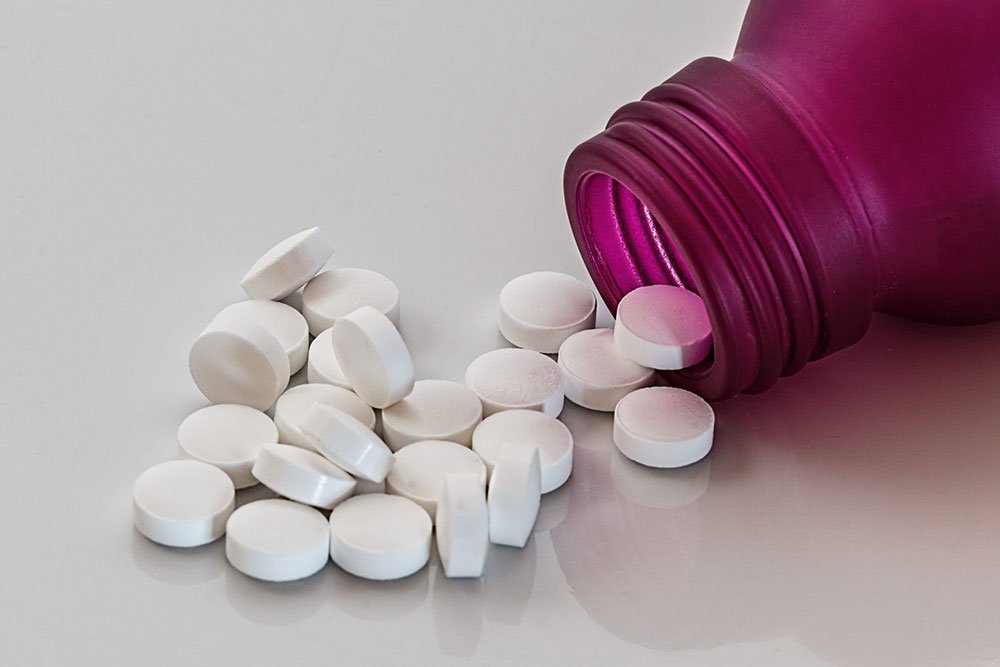
The use of opioids and other potent drugs causes feelings of relaxation or euphoria, which often leads to dependency and addiction. Consequently, individuals may develop an opioid use disorder, which can necessitate the involvement of a specialized opioid treatment center offering comprehensive treatment programs and therapy services.
Assistance is accessible for individuals facing challenges with opioid addiction. Locate resources for prevention, treatment, and recovery in your surrounding areas. Should you or another individual require urgent medical assistance, please dial 911. It is crucial to recognize that an opioid treatment program can also assist individuals seeking help for opiate addiction.
Why Are Opioids Addictive?
- Opioid receptors: Opioids attach to specific receptors located in the brain, spinal cord, and various other organs.
- Dopamine release: The consumption of opioids stimulates the release of dopamine, a neurotransmitter integral to the regulation of the brain’s reward and pleasure mechanisms.
- Euphoria: The surge of dopamine engenders a state of euphoria, contributing to an enhanced sense of well-being.
- Tolerance: With prolonged use, the body adapts to the presence of opioids, necessitating increased dosages to achieve the same euphoric effect.
- Withdrawal: Upon cessation or reduction of opioid intake, individuals may experience withdrawal symptoms.
- Physical dependence: The body becomes reliant on a certain dosage of opioids to avert withdrawal symptoms.
- Brain chemistry changes: Extended use of opioids can lead to enduring alterations in the brain’s reward system, diminishing the ability to derive pleasure from other activities.
All opioids function similarly in how they affect the brain and body. They stimulate specific nerve cell regions in the brain and body known as opioid receptors, which inhibit the transmission of pain signals. Some side effects of opioid misuse to recognize include:
- Drowsiness
- Calmness
- Intense happiness
- Nausea
- Emesis
- Bowel obstruction
- Decreased respiratory rate, which may lead to hypoxia: a potentially hazardous decrease in the oxygen levels within the body.
Opioid medications, including those that are prescribed by healthcare professionals, possess a high potential for addiction and significantly increase the likelihood of overdose and fatality.
Contact Our Admissions Team Today
Testimonials
![]()
![]()
![]()
![]()
![]()
Victoria H
I couldn’t recommend Origins more, I first attended their IOP program, then their residential program in South Padre. I’m writing this today a year and a half sober and going strong. Origins has literally saved my life in more ways than one.
![]()
![]()
![]()
![]()
![]()
Emily W
The clinicians are knowledgeable and skilled in a way that is always helpful and never harmful. This program brought me lasting healing and freedom.
![]()
![]()
![]()
![]()
![]()
Mary L
I cannot say enough about Hannah’s House. I entered broken, tired and far more sick than I realized. I was treated with kindness, love, patience and respect by all. I was so frightened to go but sad to leave, that speaks volumes. Thank you from the bottom of my heart to all who put me back together, I am eternally grateful.
![]()
![]()
![]()
![]()
![]()
Jack W
I struggled with my sobriety for over 5 years, but they were able to help me through the 12 steps of AA. I have been sober ever since my experience here. I’ll be hitting 2 years of sobriety in 22 days, thanks to this treatment center. No matter where you go, it’s all about your level of commitment towards gaining a better life ?
![]()
![]()
![]()
![]()
![]()
Jazmine R
Origins was exactly what I needed. The staff were incredibly knowledgeable, compassionate, and helpful. They come with years of experience and consider each individual they’re helping. If you’re looking for a facility that will truly care as much as you/your parents do, or are desperate for a miracle — I can’t recommend Origins more! ❤️
Signs and Symptoms of An Opioid Use Disorder
This refers to a physiological alteration that occurs as a result of substance use. Upon cessation of the drug, individuals may experience withdrawal symptoms, which can include intense cravings and perspiration.
It is crucial to recognize that an individual may develop physical dependence on opioids without engaging in harmful usage. For instance, a cancer patient suffering from chronic pain may rely on opioids for relief and be physically dependent, yet not exhibit signs of addiction.
An individual may persist in using opioids despite the emergence of issues related to health, safety, financial stability, or interpersonal relationships. Those with opioid use disorder often find themselves unable to regulate their opioid consumption, and the associated behaviors of obtaining and using these substances increasingly disrupt their daily lives.
These manifest as intense physical and emotional desires to consume the drug, even when the individual is aware of the potential negative impacts on their well-being.
The signs of an opioid use disorder may not be immediately apparent. However, over time, certain indicators may emerge, suggesting that the individual requires assistance, such as:
- Itching of the skin
- Impulsive behavior
- Withdrawal from social interactions
- Consuming opioids in quantities exceeding the prescribed amount
- Taking prescription opioids from acquaintances or relatives
- Obtaining prescriptions for opioids from multiple healthcare providers (commonly referred to as “doctor shopping”)
- Participation in hazardous activities (such as driving while impaired by opioids)
- Abrupt changes in behavior (including mood swings, irritability, or unusual euphoria)
- Challenges with staying awake and alterations in sleep habits
- Evidence of needle use (indicative of intravenous drug use)
- Diminished interest in activities once found enjoyable
- Deceit regarding substance use issues
- Unexplained weight reduction
- Constricted pupils
When individuals cease the consumption of alcohol or the use of drugs following a period of substance dependence, they may encounter withdrawal symptoms. The nature of the withdrawal process can vary based on the specific substance involved. Additionally, the duration of substance abuse plays a significant role in the severity and type of withdrawal symptoms experienced. Those undergoing opioid withdrawal may face a range of challenges, including:
- Nausea
- Anxiety
- Vomiting
- Insomnia
- Muscle aches
- Excessive yawning
- Profuse sweating
- Abdominal cramps
- Dilated pupils
- Goosebumps
- Nasal discharge
- Irritability
- Diarrhea
The discomfort and potential dangers associated with opioid withdrawal symptoms underscore the necessity of seeking professional treatment to overcome opioid addiction. Accessing medical and professional support during this critical period is essential for a safe and effective withdrawal process.
Individuals grappling with a substance use disorder may often downplay the severity of their condition and resist assistance for an extended period. Once they are prepared and motivated to embark on the path to recovery, it is crucial for them to have access to the necessary resources and to initiate treatment without delay.
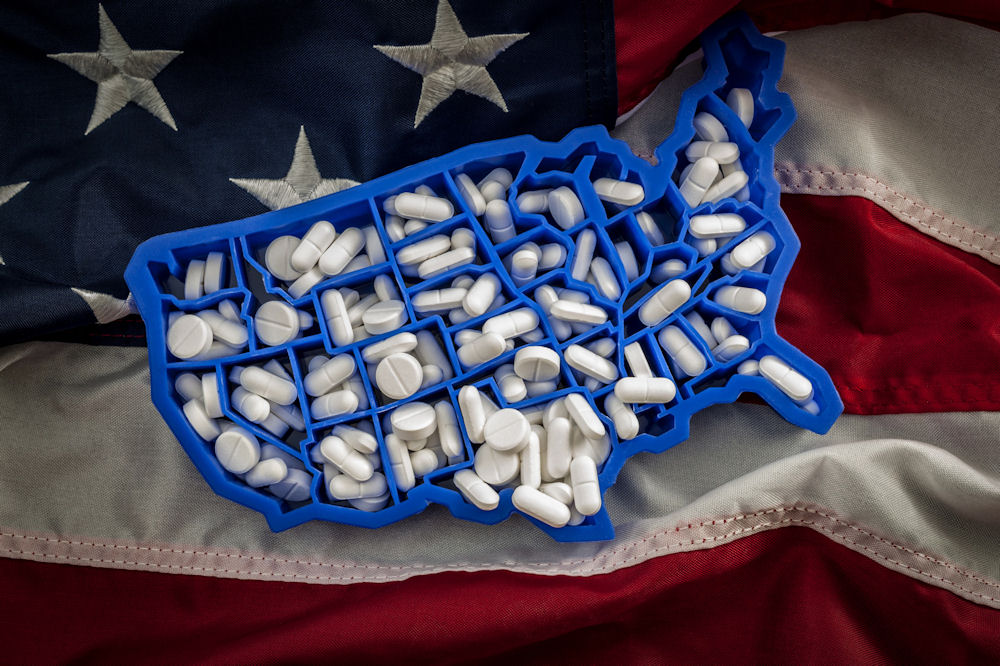
Why Opioid Rehab in Texas is Necessary?
Opioid misuse is marked by an uncontrollable urge to consume opioid substances, even in instances where the individual desires to cease usage or when such abuse adversely impacts their physical and emotional health.
At Origins Texas Recovery in South Padre Island, TX, our mission is to enhance the accessibility of rehabilitation and to inform individuals about their available options, ensuring that those in need of assistance can obtain it. We offer treatment alternatives that instill hope in our clients grappling with drug abuse, alcohol addiction, or both.
Risk Factors of Opioid Abuse
- Access to and availability of opioids
- Previous exposure to substance use (e.g., having friends or family who use substances)
- Current or past substance use disorder
- Family history of substance use disorder
- Having mental health conditions such as depression or post-traumatic stress disorder
- History of abuse during childhood
- History of conduct disorder as a child or adolescent
It is important to understand that when an individual is prescribed opioids for pain management and adheres to the prescribed usage, the criteria for physical dependence are not included in the assessment of signs and symptoms.
Not all individuals who use opioids will develop an addiction. Even those who utilize opioids strictly as directed by a healthcare professional can still be at risk for developing OUD. Over time, there is a possibility that they may start to misuse opioids, consuming them for purposes other than those for which they were initially prescribed. Treatment is a necessity for people suffering from opioid addiction. If left untreated, consequences will arise.
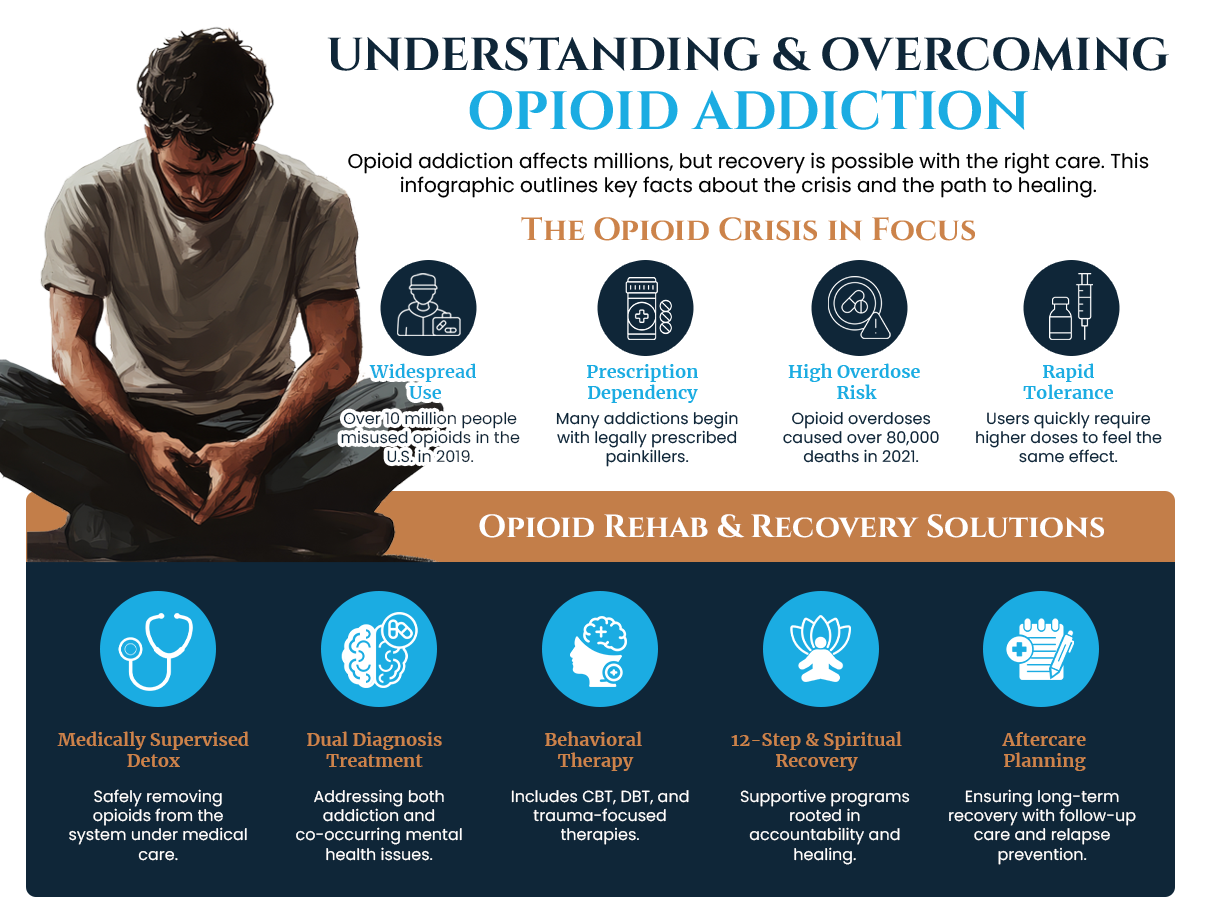
Opioid Addiction Treatment Services at Origins Texas Recovery
Healthcare professionals offer treatment for opioid use disorder, which can be administered either on an outpatient basis or within a residential facility, such as a rehabilitation center. In either setting, treatment may involve the use of medications like methadone, buprenorphine, or naltrexone, in conjunction with supportive programs designed to assist individuals in their recovery journey. Origins Texas Recovery’s opioid treatment center offers the following programs:
- Drug and alcohol detox
- Inpatient treatment
- Outpatient treatment
- Intensive outpatient program (IOP)
- Addiction aftercare program
- Executive program
- Alumni program
Drug and Alcohol Detox
Opioid use disorder rehabilitation generally commences with a medically supervised detoxification process or a medication-assisted treatment (MAT) program. Following this initial phase, individuals will transition into a drug and alcohol treatment program tailored to their specific needs and circumstances.
The initial stage of treatment focuses on managing withdrawal, which involves assisting the individual in eliminating opioids from their system. When someone with a physical dependence on opioids ceases consumption, withdrawal symptoms typically manifest within six to twenty-four hours. The duration of this onset varies based on the specific opioid used and other contributing factors.
Gender-Specific Treatment Programs
At Origins Texas Recovery, we recognize the distinct challenges that individuals encounter in their struggle against addiction. Consequently, we have developed gender-specific treatment programs designed to address the specific needs of men and women who are striving to overcome substance use and mental health challenges.
Our modern facilities offer a tranquil and supportive atmosphere, allowing men to concentrate on their recovery process without the distractions and stresses of daily life. At our residential women’s addiction treatment center (Hannah’s House) and men’s residential addiction treatment centers in Harlingen, TX, we promote long-term recovery and healing.
Residential and Outpatient Opioid Addiction Treatment
Conversely, outpatient rehabilitation services enable patients to engage in therapy during the day while returning to their homes or sober living arrangements in the evenings. Inpatient treatment is particularly advantageous for individuals grappling with severe opioid addiction, while outpatient treatment is for less severe cases.
Alternatively, outpatient treatment may be more appropriate for those who have completed residential treatment. Our adaptable outpatient program enables you to uphold your daily obligations while receiving the necessary care. You will have access to personalized therapy, group sessions, and holistic therapy for addiction that cater to your physical, emotional, and spiritual health.

Aftercare Program
You have successfully navigated the most challenging aspects of your addiction. The path to enduring recovery now lies ahead. At Origins Recovery in Texas, a source of hope is prepared to assist you in taking the next steps. An aftercare program is a continuum of care that’s essential in providing the necessary support to ensure you do not confront this challenge in isolation.
We recognize the distinct difficulties that arise following initial treatment. Concerns about potential relapses or the allure of previous behaviors may weigh on your mind. Within our facility, you will discover ongoing support and a caring presence. You are entitled to a future liberated from addiction, and we’re committed to helping you achieve that goal.
Dual Diagnosis Treatment
A substance use disorder, such as heroin addiction, significantly increases the likelihood of individuals experiencing mental health issues, including anxiety and depression. Dual diagnosis treatment addresses both the addiction and the accompanying mental health conditions concurrently. This integrated approach facilitates a more comprehensive recovery and diminishes the chances of relapse in the future. Common mental health disorders that frequently coexist with addiction include:
- Depressive disorders
- Bipolar disorder
- Anxiety disorders
- Post-traumatic stress disorder (PTSD)
- Attention-deficit hyperactivity disorder (ADHD)
Our team of professionals understands the intricate relationship between addiction and mental health disorders. We view our clients as complete individuals rather than merely a collection of symptoms. You are entitled to comprehensive care that encompasses all facets of your well-being. At Origins Texas, we provide a secure and nurturing environment conducive to your healing process.
Nationally Recognized & Accredited


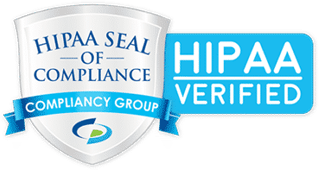
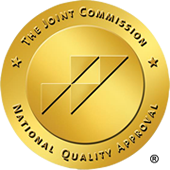
Addiction Counseling for Opioid Use Disorder
Treatment centers may offer a range of resources, including group therapy, relapse prevention training, vocational and educational services, as well as community-based or family-oriented support. Additionally, mental health assessments and other supportive services may be provided to facilitate ongoing recovery. The various types of therapy incorporated into our substance abuse treatment initiatives include:
- Cognitive behavioral therapy (CBT)
- Dialectical behavior therapy (DBT)
- Holistic therapy
- Individual therapy
- Group therapy
- Family therapy
Engagement in either individual or group counseling can lead to transformative outcomes through behavioral therapy. Individuals are provided with a platform to share their addiction-related challenges with specialists and therapists who possess a deep understanding of the complexities associated with addiction. Family therapy helps people and their loved ones get through challenges together, learn to communicate more effectively, and repair relationships.

Our Opioid Treatment Center Can Help You Recover
Nevertheless, approximately 100,000 deaths continue to occur annually. The combination of street drugs, including fentanyl, methamphetamines, xylazine, and other synthetic substances, has become increasingly lethal.
It is imperative to enhance support for individuals struggling with addiction when they are prepared to seek recovery. The National Institute on Drug Abuse (NIDA) emphasizes the importance of implementing preventive strategies. If the recent decline in drug overdoses is attributed to effective interventions, addiction specialists must intensify their efforts to provide assistance and support in the event of overdoses.
At Origins Texas Recovery in South Padre Island, TX, our methodology is customized to meet your unique needs. Together, we will formulate a treatment plan that aligns with your lifestyle and goals. You don’t have to face this challenge alone. You have a dedicated ally in your journey to recovery. We have the power to help lower the rates of opioid addiction and overdose deaths through access to substance abuse treatment and mental healthcare. Initiate your path toward a healthier and more fulfilling life. Contact us today.














